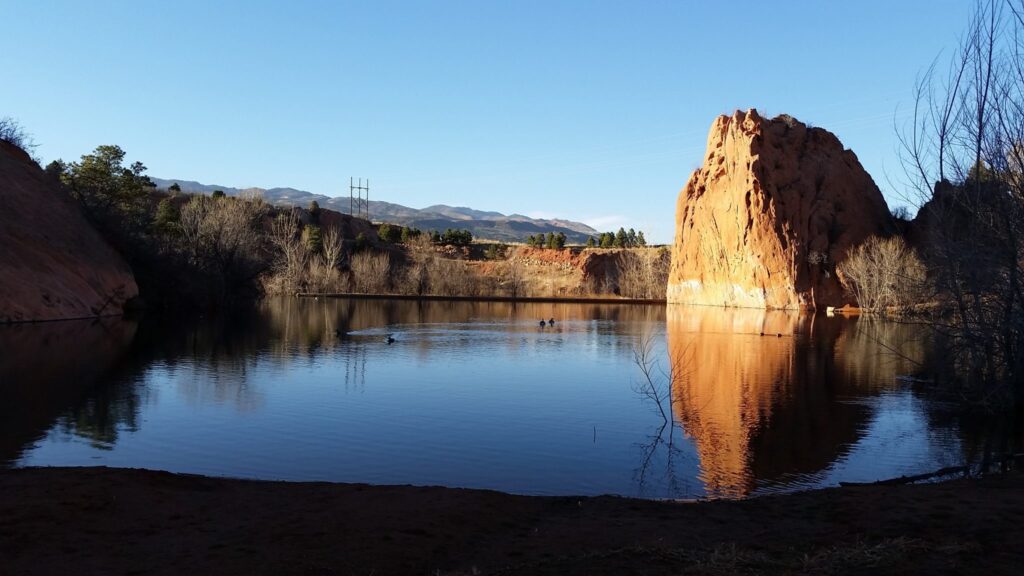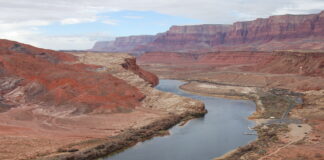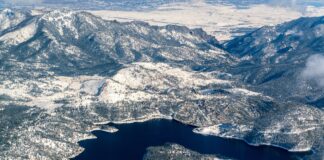
State engineers in the Arkansas River basin are beginning to crack down on more than 10,000 ponds without legal water rights, which they say are harming senior rights holders.
Last month, Colorado’s Division of Water Resources in Division 2 rolled out a new pond-management plan, which they say will help relieve pressure in the over-appropriated basin by restoring water to senior rights holders. The first step was mailing on Jan. 14 informational brochures to 317 pond owners.
Even though the ponds targeted in this effort may have existed for many decades, they don’t have a legal right on the books to divert and store the water. The main concern with these ponds is water loss through evaporation. According to the brochure, for every acre of pond surface area, up to 1 million gallons of water — which is just over 3 acre-feet — is lost to evaporation each year. Division 2 Engineer Bill Tyner said, “Tens of thousands of acre-feet over time would be maintained in the Arkansas River system with a pond-management system in place.”
Although the cumulative water loss could threaten Colorado’s ability to meet its obligations to deliver water to Kansas under the Arkansas River Compact, the main issue is injury to senior water users. Added together, these ponds without a water right could deplete enough water that it makes it hard for these senior water rights holders to get the full amount to which they are entitled.
“Once we put the data together and we could look at the images of ponds and get a count of the number and relative sizes on average of those ponds, it did make us just very sure that this was a problem that could have some very negative consequences for the basin if we didn’t get more aggressive about the way that we took it on,” Tyner said.
Front Range water users divert water from the headwaters of the Roaring Fork and Fryingpan rivers into the Arkansas Basin, but the new pond-management plan probably won’t affect those transmountain diversions, Tyner said.
According to Colorado water law, anyone is allowed to divert water from a stream simply by putting it to beneficial use as long as it does not harm senior water-rights holders. To protect their ability to keep using the water and save their place in line, most users make their water right official by getting a decree through water court. This enshrines the water right in Colorado’s system of prior appropriation in which older water rights have first use of the river.
Because these undecreed ponds don’t have an official water right, they are taking water out of priority, which amounts to stealing water from senior users.
Matt Heimerich, the consumptive-use representative on the Arkansas River Basin Roundtable, said that over the past two decades the Arkansas River system has been under incredible pressure because of erratic and below-average flows. He described the shifting baseline of what constitutes a severe drought.
“It seems to me we just keep moving the bar lower,” he said. “How bad can the river get? We are always looking for the next threshold.”
Drought and warming temperatures fueled by climate change comprise the backdrop for the implementation of the pond-management plan.

This pond in Chaffee County near Salida is one of thousands in the Arkansas River Basin that is being evaluated by the Division 2 engineer’s office as part of a new pond management program. Engineers say ponds without decreed water rights could injure senior water rights holders.
Augmentation plans
In order to be allowed to keep water in a pond, pond owners must replace the water loss to the system, usually through what’s known as an augmentation plan.
In some areas in Division 2, pond owners can purchase water to replace their depletions through a conservancy district. Salida-based Upper Arkansas Water Conservancy District offers this replacement water, but manager Ralph “Terry” Scanga doesn’t believe there is enough water to fully augment all the ponds in the already over-appropriated basin.
“That’s a concern of mine because that’s a lot of water,” Scanga said. “I don’t think it’s being overstated what the impact could be.”
Scanga, who also serves on the Arkansas River Basin Roundtable, said it may be time to prioritize certain water uses over others. Having domestic water for use in homes may be more essential than ponds for aesthetic purposes, he said.
“You may want that pond and you may have enough money to purchase that augmentation plan from the district, but is that a wise use of that resource?” Scanga said. “Those are the real hard questions that need to be asked.”
Un-decreed ponds can be found throughout the state, including in the Roaring Fork watershed. Last fall, Division 5 engineers issued five cease-and-desist orders for ponds without water rights that they said were out of priority and depleting the Colorado River system.
So far, state engineers are focusing their pond-management plan on just the Arkansas River basin; it’s not yet a statewide program. Still, Tyner said it’s a big undertaking for his division. It could take five years for engineers and water commissioners to work their way through all the ponds.
“How do you eat an elephant? It’s one bite at a time,” Tyner said. “Our approach is to be systematic about it and fair as we go.”
Aspen Journalism covers water and rivers in collaboration with Swift Communications newspapers. Its water desk is supported by Sam Walton via the Catena Foundation. This story ran in the Feb. 1 edition of The Aspen Times.
The Water Desk’s mission is to increase the volume, depth and power of journalism connected to Western water issues. We’re an initiative of the Center for Environmental Journalism at the University of Colorado Boulder. The Water Desk launched in April 2019 with support from the Walton Family Foundation. We maintain a strict editorial firewall between our funders and our journalism.





